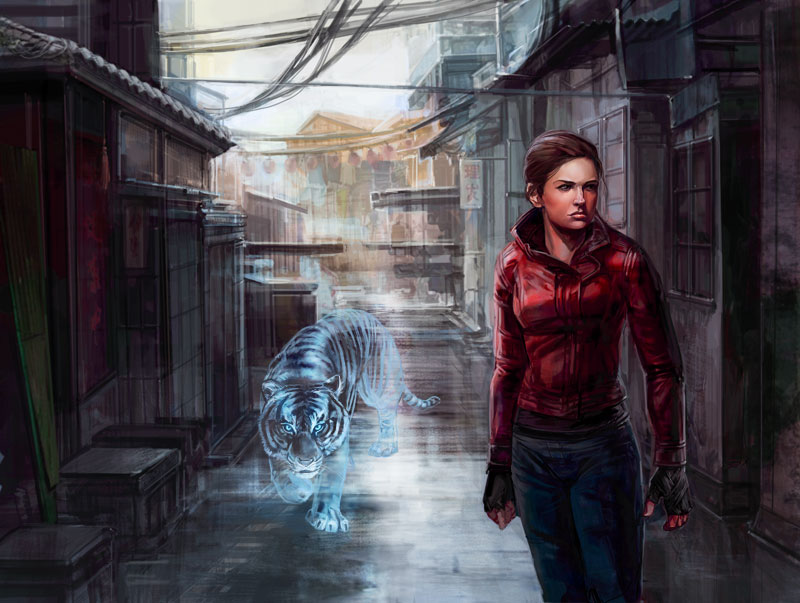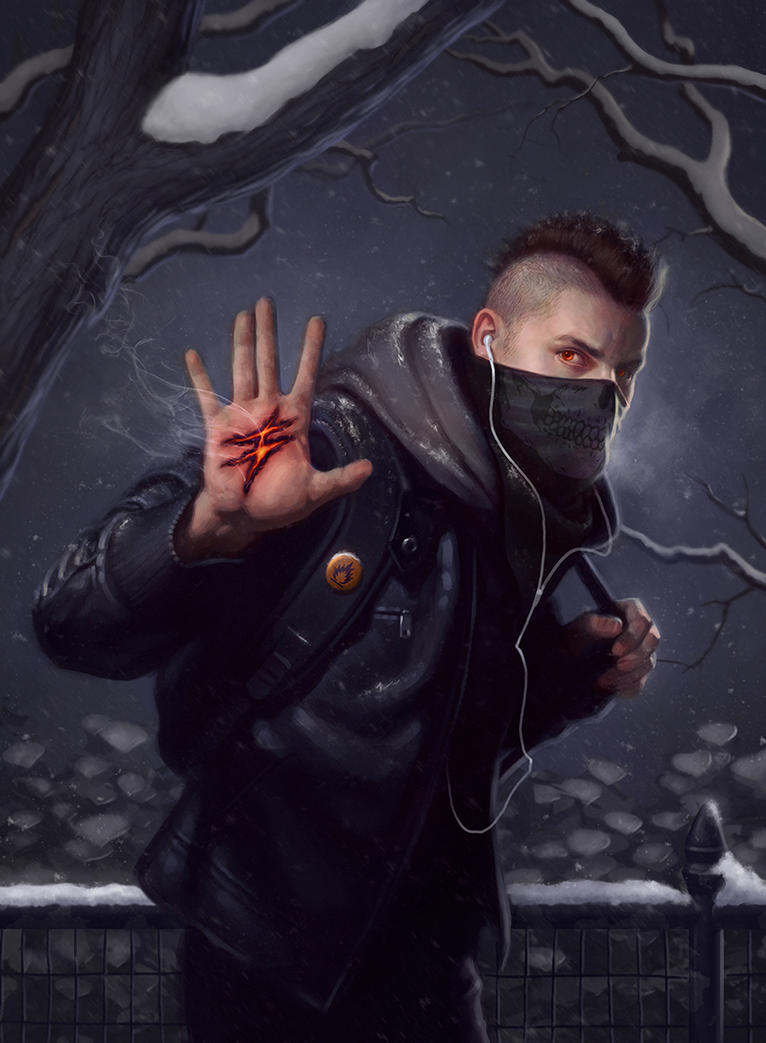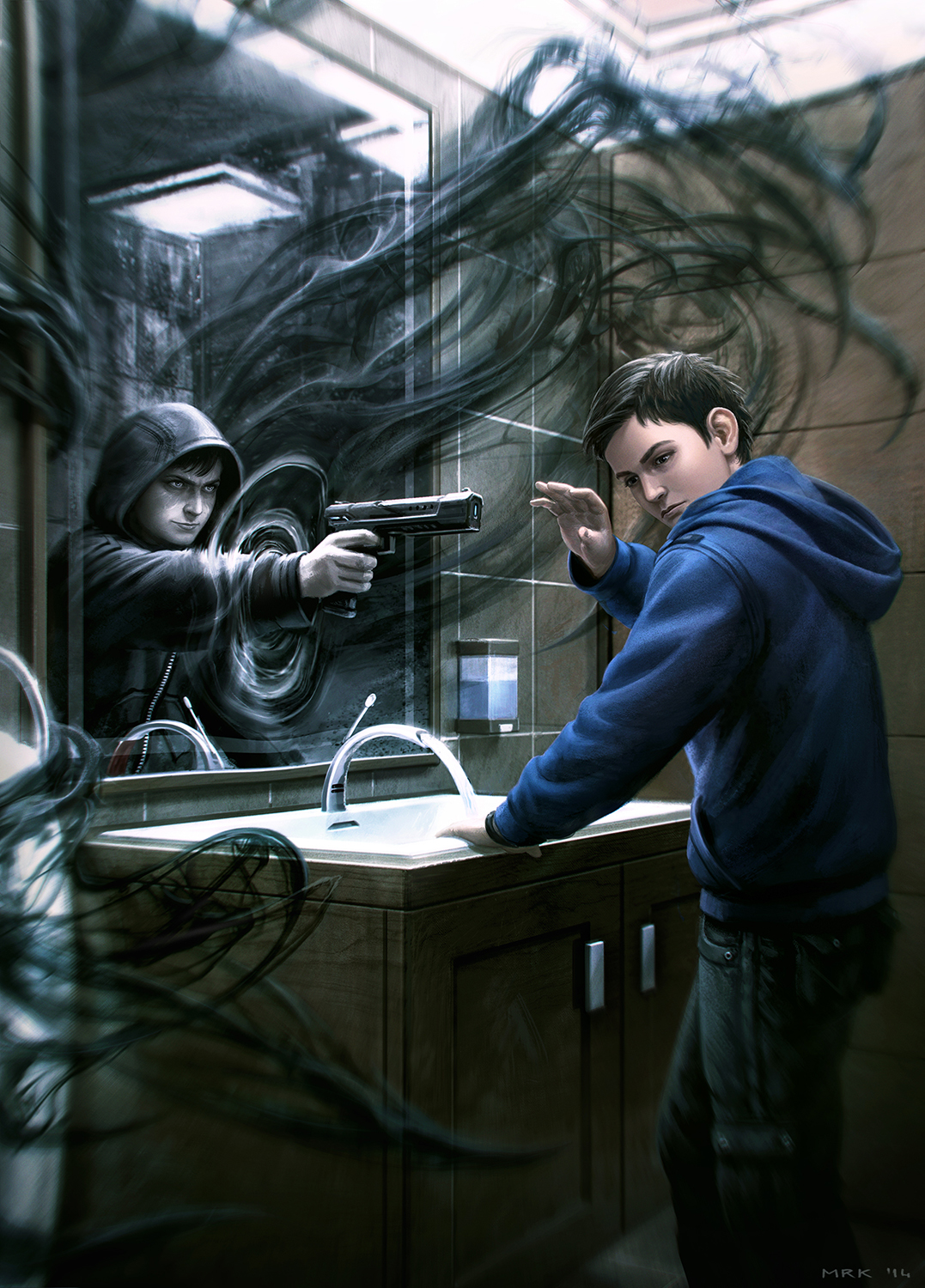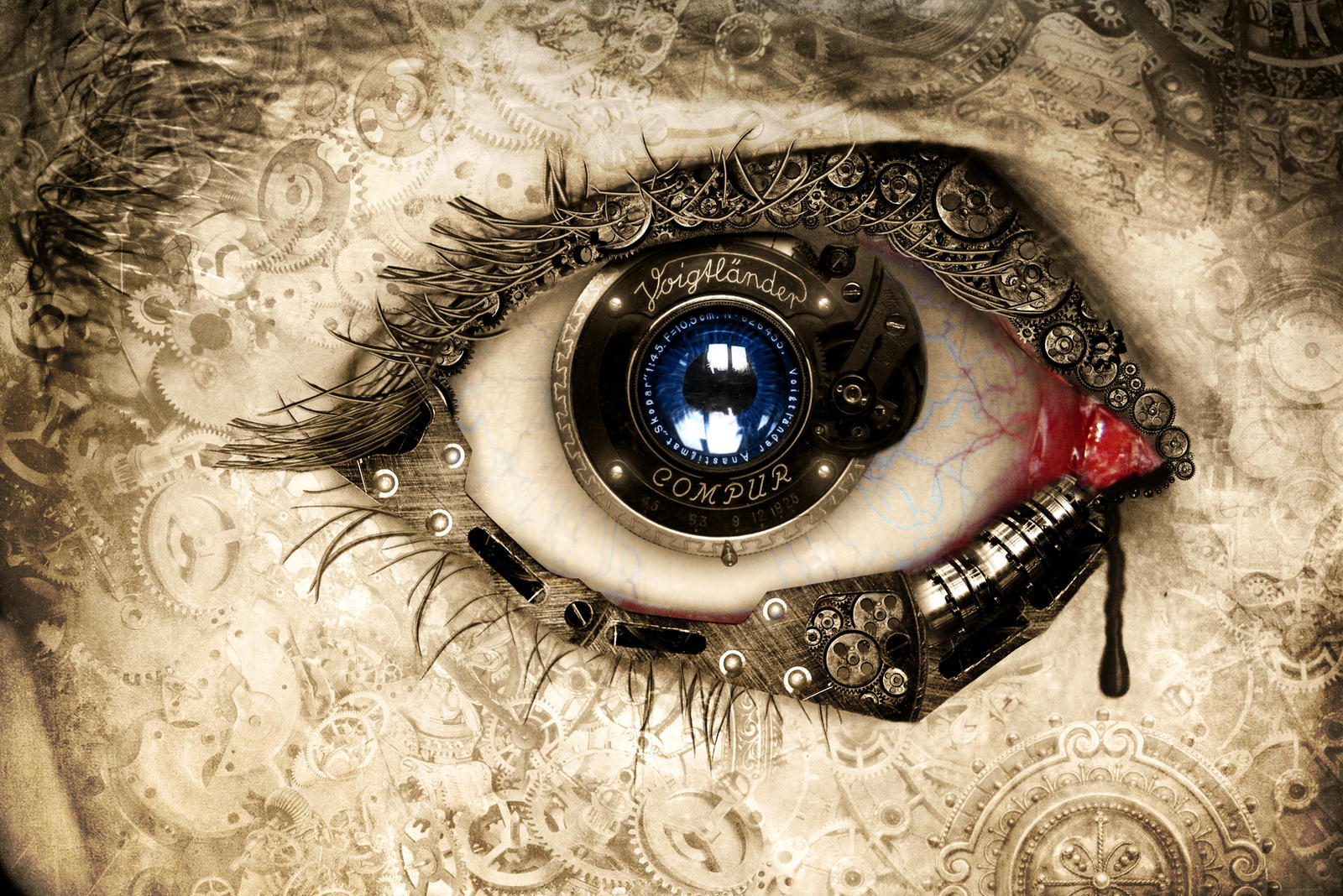Most of the background features presented in Player's Handbook rely on your adventurers traveling around the world a lot. Ethernet of Keys should be centered on a few big cities above anything else, with players solving problems that occur within them and maybe traveling out of the cities now and then. Paging through the book, I discovered that most of the backgrounds offer what amounts to the same benefits: You can sleep in someone else's house, they maybe even offer you food if you're a good guest, they are generally friendly to you and your group. Compare that to urchin, whose feature of moving twice as fast through the cities is very useful in an urban-centric game.
Most of the features listed in this document come from Player's Handbook and Sword Coast Adventurer's Guide, as well as Backgrounds Omnibus, and Tribality. Few of the features I came up with myself, or boiled down from the official sources.
Download the PDF
 |
| Being a hockey player was just the beginning of his undead hunting profession. Harry Dresden, by BrentWoodside |
Reworked Backgrounds
As a player, you can choose two skill proficiencies and a total of two tool proficiencies or languages. You can't choose languages granted only by class features this way. You can also choose personal characteristics — personality traits, ideals, bonds and flaws — from any background. All of these choices should be discussed with the DM to see how they fit PC's backstory.
The players also gain two background features — a group background feature, and an individual background feature. The group background feature shows how the character is related to the world and can give them a trinket that should somehow tie them to the organization, while the individual background feature gives the player something that makes them different.
The players also gain two background features — a group background feature, and an individual background feature. The group background feature shows how the character is related to the world and can give them a trinket that should somehow tie them to the organization, while the individual background feature gives the player something that makes them different.
Group Background Feature
Choose one group such as an organization, a small town or a district of a large city. You can find place to hide, rest or recuperate among other commoners in the chosen group, unless you have shown yourself to be a danger to them. They will shield you from the law or anyone else searching for you, though they will not risk their lives for you.Additionally, if the chosen group can provide a service for you, such as sailing a ship or casting some spells, they are willing to do it for a reduced cost of small favor in return, depending on the task.
Examples of such organizations, other than small towns or city districts, include: religious groups, artistic groups, criminal gangs, medical centers, entertainment troupes, journalistic corporations, noble families, ship crews, armies, hacker cliques, ...
Individual Features List
You can choose one of the following features as a background feature that characterizes you more personally. It is possible to gain or lose these features during play.
Authority. Whether it's due to your noble heritage or unnatural beauty, you are welcome in high society and people assume you have the right to be wherever you are. You have no troubles securing an audience with a local noble if you need to, and the common folk make efforts to avoid your displeasure, as long as they have respect for you.
Bad Reputation. People are afraid of you due to your reputation. You can get away with minor criminal offenses, such as refusing to pay for food at a bar or breaking down doors at a local shop, since most people will not report your activity to the authorities.
Black Market Contact. You know how to gain access to the local black market, where you can buy equipment you wouldn't be able to buy legally.
Citywise. When you are not in combat, you (and companions you lead) can travel between any two locations in the city twice as fast as your speed would normally allow.
Companions. Whether they are servants, companions from your group or fans, you have the service of three commoners who can perform mundane tasks for you. However, they will not follow you into obviously dangerous areas, and will refuse to fight for you. If they are endangered or abused too frequently, they will leave.
Curiosity. Through the curiosity you spark in others just by your presence through your accent, mannerisms, figures of speech, or perhaps even appearance, you can gain access to people and places you might not otherwise have, for you and your traveling companions.
Discovery. You have uncovered a great truth of some nature. It could be a truth about the cosmos, forces of nature, or a fact that has been long forgotten. Work with your DM to determine the details of your discovery and its impact on the campaign.
False Identity. You have created a second identity that includes documentation, digital profile, established acquaintances, and disguises that allow you to assume that persona.
Favor Exchange. You can call in a favor from a contact within your chosen group to perform a mundane task for you such as gathering information or arranging safe passage. If the favor puts your contact at risk, they will require an equally risky favor from you in return. The contact can refuse to perform tasks assigned to them before they manage to finish the first one.
Immortal. You can't die of old age. Work out with your DM the details of your immortality — how did your character achieve it, whether there are any side effects it has etc.
Innocent. When you are at the mercy of another, they always prefer to capture you rather than kill you, unless you resist capture to the point of death. If you offer yourself as a hostage (perhaps in exchange for another), almost any creature accepts this trade.
Landowner. You own a building larger than a regular home and a plot of land it stands on. Determine with your DM why you own it, what exactly it is for and some basic parameters such as the size or some rooms it has.
Oathbreaker’s Mark. Your soul is marked for your transgressions, and the magical beings can always recognize an oathbreaker mark. Encounters with the magical creatures are not necessarily hostile, but they are never trusting. When a creature breaks an oath or bargain with you, you can mark it as an oathbreaker if it is on the same plane of existence as you are. You can end a mark that you placed at any time, and you can sense oathbreaker marks on others if you can see them, and they are within 30 feet.
Pattern master. By observing a pattern you can predict what comes next, if advancing, or what came before if needing to predict in reverse order with 100% accuracy. This ability works with even irregular patterns, or ones that don’t seem to follow the same set of rules all the time. The more complex a pattern is, the longer it takes you to figure it out.
Researcher. If you don't know a piece of information you're trying to recall or learn, you know where and from whom you can obtain it. Usually, this information comes from a library, university, or some learned person. Your DM might rule that the knowledge you seek is secreted away in an almost inaccessible place, or that it simply cannot be found.
Unprofiled. Whether through your own actions, or that of a benefactor, you have almost no digital presence. Almost all records of your history have been erased or sealed, and you are not easily recognizable by facial recognition or cameras. Your data is also extremely secure, and only your personal devices can access it.
Vigilant. Once per day, you can spend 10 minutes observing the settlement you reside in at the moment to get a significant observation about local culture such as a local taboo, legend or rumor.
Wanderer. You have excellent memory for maps and geography, and you can always recall the general layout of terrain, settlements, and other features around you. In addition, you can find food and fresh water for yourself and up to five other people each day while in wilderness, provided that the land offers berries, small game, water and so forth.
In the future, I will expand the backgrounds by including the starting equipment players get from individual features. Until then, I will have to settle for the optional rule from chapter 5 of PHB.
The first axis talks about the character's awareness of the profiling and conspiracies behind the technology. There are generally three groups of people on this axis: people who are aware and worried about it, possibly even doing something against the system; people who are unaware and blissfully live out their lives not knowing anything about it; and people who are ignorant of it — they know about the system knowing their preferences, but choose to not do anything about it, feeling it's alright for the providers to invade their privacy.
Example uses: finding like-minded individuals on the ethernet annonymously, changes in the danger rating of an individual, general outlook on the society, ...
The second axis talks about the character's relationship to magic. The first group finds magic to be fine, and useful. For the purposes of the alignment, they'll be thus labeled as arcanists (unless I find a better name). Then there are those who are neutral about the magic, not minding it but not really trying to use it themselves. And finally, forsakers, who find magic to be repulsive and consider it a force working against the humanity and civilization due to how it works against the technology.
Example uses: fairies that can detect whether you do or don't hold magic, government keeping track of your stance of magic, your public stance affecting the profile companies have about you, access into the societies that work for or against magic, ...
I would of course advise players to agree before creating their characters on which of the alignments do they pick. With the second one, I have succeeded in not making it necessarily “good vs. evil”, but with the first one I can't quite say that, seeing how the system will rely on PCs that are hackers and those who fight for the privacy of common folk.
For my games, I recommend players pick either aware or unaware alignment on the awareness scale, and arcanist or neutral alignment as a stance towards magic.
That should be all for today. Next up, expect the updated version of Legacy System, with some new features! Thank you for reading, and have a nice day!
Authority. Whether it's due to your noble heritage or unnatural beauty, you are welcome in high society and people assume you have the right to be wherever you are. You have no troubles securing an audience with a local noble if you need to, and the common folk make efforts to avoid your displeasure, as long as they have respect for you.
Bad Reputation. People are afraid of you due to your reputation. You can get away with minor criminal offenses, such as refusing to pay for food at a bar or breaking down doors at a local shop, since most people will not report your activity to the authorities.
Black Market Contact. You know how to gain access to the local black market, where you can buy equipment you wouldn't be able to buy legally.
Citywise. When you are not in combat, you (and companions you lead) can travel between any two locations in the city twice as fast as your speed would normally allow.
Companions. Whether they are servants, companions from your group or fans, you have the service of three commoners who can perform mundane tasks for you. However, they will not follow you into obviously dangerous areas, and will refuse to fight for you. If they are endangered or abused too frequently, they will leave.
Curiosity. Through the curiosity you spark in others just by your presence through your accent, mannerisms, figures of speech, or perhaps even appearance, you can gain access to people and places you might not otherwise have, for you and your traveling companions.
Discovery. You have uncovered a great truth of some nature. It could be a truth about the cosmos, forces of nature, or a fact that has been long forgotten. Work with your DM to determine the details of your discovery and its impact on the campaign.
False Identity. You have created a second identity that includes documentation, digital profile, established acquaintances, and disguises that allow you to assume that persona.
Favor Exchange. You can call in a favor from a contact within your chosen group to perform a mundane task for you such as gathering information or arranging safe passage. If the favor puts your contact at risk, they will require an equally risky favor from you in return. The contact can refuse to perform tasks assigned to them before they manage to finish the first one.
Immortal. You can't die of old age. Work out with your DM the details of your immortality — how did your character achieve it, whether there are any side effects it has etc.
Innocent. When you are at the mercy of another, they always prefer to capture you rather than kill you, unless you resist capture to the point of death. If you offer yourself as a hostage (perhaps in exchange for another), almost any creature accepts this trade.
Landowner. You own a building larger than a regular home and a plot of land it stands on. Determine with your DM why you own it, what exactly it is for and some basic parameters such as the size or some rooms it has.
Oathbreaker’s Mark. Your soul is marked for your transgressions, and the magical beings can always recognize an oathbreaker mark. Encounters with the magical creatures are not necessarily hostile, but they are never trusting. When a creature breaks an oath or bargain with you, you can mark it as an oathbreaker if it is on the same plane of existence as you are. You can end a mark that you placed at any time, and you can sense oathbreaker marks on others if you can see them, and they are within 30 feet.
Pattern master. By observing a pattern you can predict what comes next, if advancing, or what came before if needing to predict in reverse order with 100% accuracy. This ability works with even irregular patterns, or ones that don’t seem to follow the same set of rules all the time. The more complex a pattern is, the longer it takes you to figure it out.
Researcher. If you don't know a piece of information you're trying to recall or learn, you know where and from whom you can obtain it. Usually, this information comes from a library, university, or some learned person. Your DM might rule that the knowledge you seek is secreted away in an almost inaccessible place, or that it simply cannot be found.
Unprofiled. Whether through your own actions, or that of a benefactor, you have almost no digital presence. Almost all records of your history have been erased or sealed, and you are not easily recognizable by facial recognition or cameras. Your data is also extremely secure, and only your personal devices can access it.
Vigilant. Once per day, you can spend 10 minutes observing the settlement you reside in at the moment to get a significant observation about local culture such as a local taboo, legend or rumor.
Wanderer. You have excellent memory for maps and geography, and you can always recall the general layout of terrain, settlements, and other features around you. In addition, you can find food and fresh water for yourself and up to five other people each day while in wilderness, provided that the land offers berries, small game, water and so forth.
In the future, I will expand the backgrounds by including the starting equipment players get from individual features. Until then, I will have to settle for the optional rule from chapter 5 of PHB.
 |
| This is what happens when your city doesn't have magical monster hunters. Ghost Cat, by thegryph |
... and Alignments
Lower your pitchforks, please. I know what I have said in the past about alignments, and I know I have ditched them for most of my other settings. But its box always sits at the top of the character sheets, ready to be used for something. That's why I've tried to experiment a little, and came up with something that could be a good use for it. One that the players would actually have to make anyway, and one that would not make their characters go mad, because their characters already acknowledge these alignments to be true. These alignments are about their personal philosophies.The first axis talks about the character's awareness of the profiling and conspiracies behind the technology. There are generally three groups of people on this axis: people who are aware and worried about it, possibly even doing something against the system; people who are unaware and blissfully live out their lives not knowing anything about it; and people who are ignorant of it — they know about the system knowing their preferences, but choose to not do anything about it, feeling it's alright for the providers to invade their privacy.
Example uses: finding like-minded individuals on the ethernet annonymously, changes in the danger rating of an individual, general outlook on the society, ...
The second axis talks about the character's relationship to magic. The first group finds magic to be fine, and useful. For the purposes of the alignment, they'll be thus labeled as arcanists (unless I find a better name). Then there are those who are neutral about the magic, not minding it but not really trying to use it themselves. And finally, forsakers, who find magic to be repulsive and consider it a force working against the humanity and civilization due to how it works against the technology.
Example uses: fairies that can detect whether you do or don't hold magic, government keeping track of your stance of magic, your public stance affecting the profile companies have about you, access into the societies that work for or against magic, ...
I would of course advise players to agree before creating their characters on which of the alignments do they pick. With the second one, I have succeeded in not making it necessarily “good vs. evil”, but with the first one I can't quite say that, seeing how the system will rely on PCs that are hackers and those who fight for the privacy of common folk.
For my games, I recommend players pick either aware or unaware alignment on the awareness scale, and arcanist or neutral alignment as a stance towards magic.
That should be all for today. Next up, expect the updated version of Legacy System, with some new features! Thank you for reading, and have a nice day!









